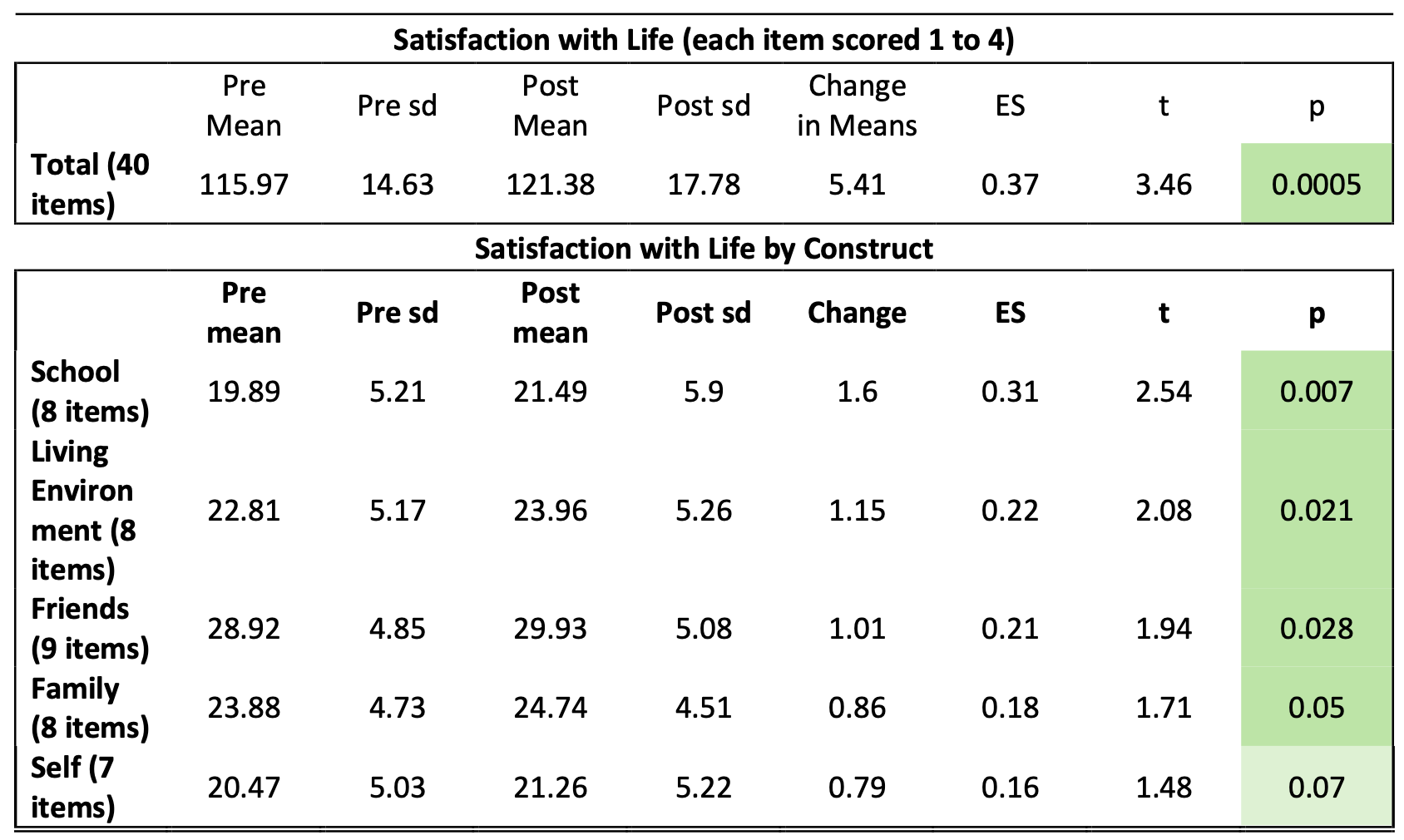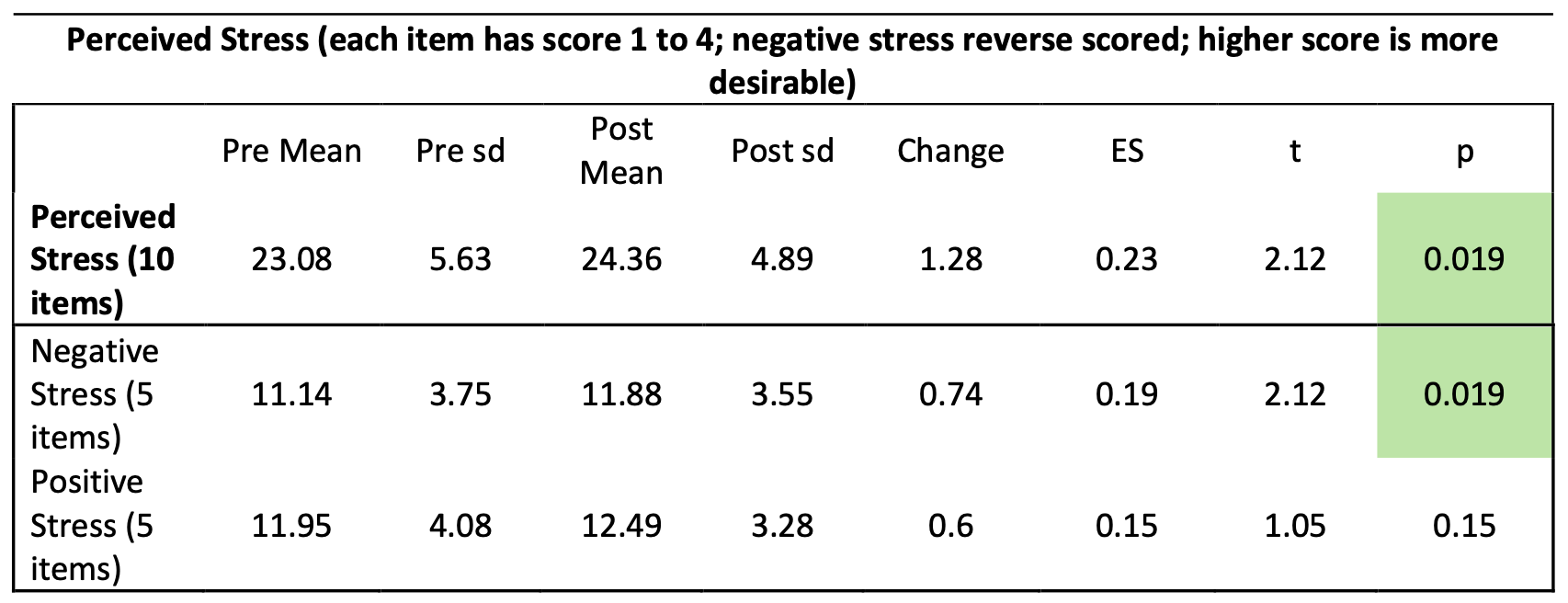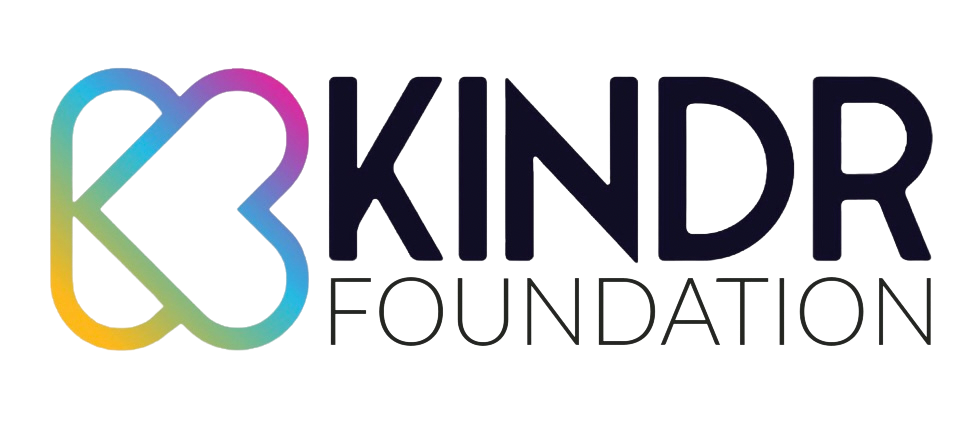
Effects of Three BeKindr Programs On Satisfaction with Life and Perceived Stress of At-Risk Children
Effects of Three BeKindr Programs On Satisfaction with Life and Perceived Stress of At-Risk Children
Bonnie Grossen
Evaluation Director
August, 2024
While much research has examined correlates with satisfaction with life (family structure, delinquent behavior), little or no research has evaluated whether intervention can improve adolescents’ level of satisfaction with life. This study found that the BeKindr interventions to teach kindness had a significant positive impact on adolescent satisfaction with life, and consequently, implies that these interventions also can reduce delinquent and risky behavior. These findings are important for public policy consideration in efforts to reduce teen violence, delinquency and antisocial behavior.
The effects of BeKindr interventions to teach kindness were evaluated with a sample of 85 Tier 2 and 3 at-risk adolescents in 8 schools in 7 different states, aged 9 to 18 in grade 4 through 12. The at-risk factors represented frequent behavior problems, anxiety disorders, emotional disturbances, non-compliance, and such. The sample showed significant gains on the Satisfaction with Life survey for adolescents developed by Huebner (1994), the same measure that numerous studies have shown predicts adolescent delinquency, including illegal and risky behavior (MacDonald et. al., 2005; McCarthy, 2011; Olsen et. al., 2021; Tang & Chan, 2017; Valois et al., 2001). Significant effects (p<0.05) were found on 3 of the 5 sub-constructs (School, Living Environment and Family). Effects on the two sub-constructs (Self and Friends) approached significance. (Significant p values are highlighted in dark green; those approaching significance are in light-green.)

The BeKindr programs also resulted in significantly lower levels of perceived stress. Other research has determined that changes in satisfaction with life affect perceived stress and not vice versa (Tang & Chan, 2017). The effects of the BeKindr programs were significant (p<0.05) for the negatively worded items (e.g., in the last month, I got angry when I couldn’t do things well) and approached significance for the positively worded items (e.g., in the last month, I felt in control of the important things in my life).

Details of the analysis and further findings can be found using the link: Results Report Spring 24 FS SS LH.pdf









